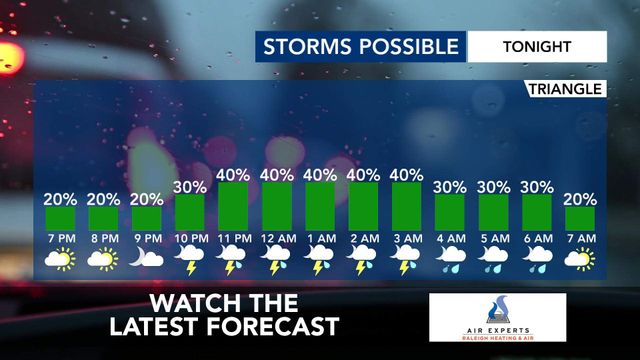Progress on Medicaid expansion? NC hospitals float offer after months of stalemate

The lobbying group for North Carolina hospitals announced a counteroffer Friday in the state's ongoing Medicaid expansion talks, a sign of progress after months of apparent stalemate.
How far the North Carolina Healthcare Association's proposal moves the ball forward wasn't immediately clear, but the group said it could accept at least some of the hospital regulatory reforms that Senate Republicans have said must be part of any deal.
The association said hospitals, which collectively stand to see billions in new revenue from newly insured patients if Medicaid expansion passes, would absorb "a minimum projected loss in revenue of more than $700 million" from the certificate of need regulatory reforms it was willing to accept.
Those reforms would allow more ambulatory surgery centers to open in the state. An NCHA spokeswoman said the association's board voted unanimously on the proposal Friday afternoon.
The announcement also said the state should repeal certificate of need for psychiatric inpatient and chemical dependency beds. Certificate-of-need is a body of complicated state regulations that limit competition in the health care industry by requiring state approval before hospitals and other facilities can open or expand.
Legislative leaders are likely to take some time to review the proposal before responding in detail. The NCHA said its staff would also send lawmakers draft legislation to consider.
"It will take some time to digest this," said Neal Inman, chief of staff to Speaker of the House Tim Moore. "But I do think it is an important step forward."
WRAL News has also reached out to Senate leadership for comment. As recently as Thursday, Senate President Pro Tem Phil Berger told WRAL News that he didn't know of any movement on these issues from the association.
Both the state Senate and the House passed Medicaid expansion bills earlier this year, but they were wildly different, representing opening positions for negotiation, and House Republicans have generally backed the hospitals' position. Berger, R-Rockingham, has said certificate of need reform is crucial to increasing the supply of medical care to account for the hundreds of thousands of people who would be added to the state's insurance rules under expansion.
He has also called for new regulations that would allow nurses more leeway to provide care without supervision from a doctor. Those negotiations, between lawmakers, nursing groups and doctors groups, are separate, but related to, conversations about certificate of need, and Berger said Thursday he had no indication the doctors groups opposing these changes had receded from that position.
In a statement, hospital association board chair Roxie Wells said it was a difficult decision to propose certificate-of-need law reforms.
"CON law changes could threaten the survival of community hospitals if they are not implemented carefully," said Wells, who is also president of Cape Fear Valley Health Hoke Hospital. "We are putting a lot of trust in legislative leaders to do this correctly."
Wells also called the association's offer "generous but financially risky."
The NCHA proposal is addressed to Moore and Berger, and it explains the associations certificate of need proposal on ambulatory surgical centers – a major part of CON law in North Carolina – like this:
Exempt operating rooms from CON in ambulatory surgical centers who meet the following criteria:
a. Be located in a county with a population over 125,000 per the Census except those counties with a Sole Community Designated Hospital
b. Must participate in the charity care fund (4% of patient net revenue)
c. Meet quality and patient safety standards, including:
i. Have at least three specialties recognized by the American Board of Medical Specialties and perform at least 100 procedures of each specialty annually
ii. Must have active transfer agreements with the nearest acute care hospital
iii. 50% of the ASC’s credentialed physicians from each specialty must have admitting privileges with the nearest acute care hospital
d. Participate in a 5% provider tax of net patient revenue to offset Expansion
e. Not effective until five years after the go live date of HASP/Expansion (i.e. the first payments for HASP are received post Medicaid Expansion
HASP stands for "Hospital Access and Stabilization Program," and it's a federal program to increase Medicaid payments, bringing them closer to the actual cost of providing care. It's part of both the House and Senate Medicaid proposals.









